Affiliate Disclosure: AmmoCave.com sometimes gets paid for listings, through sponsors or affiliate programs like Lucky Gunner, Optics Planet, Brownells, Cabelas, Academy Sports & Outdoors, Rainier Arms, Palmetto State Armory, Sportsman’s Guide, Ammo.com, Ammo Man, Primary Arms, MidWayUsa, Amazon, eBay, etс. Clicking a link helps keep AmmoCave.com free, at no extra cost to you!
Authors: Each article is verified by AmmoCave's expert team. Professional hunters, firearm trainers, gunsmiths, and gun experts write the articles. AmmoCave Team independently researches, tests, reviews, and uses recommendations from our community of gun owners. We may earn commissions from shopping links.
Note: The views and opinions expressed in this article are those of the authors and do not necessarily reflect any agency's official policy or position. The articles are for informational purposes only, share your opinions about Best Titanium Suppressor 2026 in the comments and join the discussions. Let's share 💬 our ammo & gun experiences together!
What is a Titanium Suppressor? 🔍
A titanium suppressor, also known as a titanium silencer, is a firearm accessory that is designed to reduce the noise level and muzzle flash produced by a firearm. The suppressor is typically made of titanium, a lightweight and durable metal that can withstand high temperatures and pressures.
Features 💎
| 🔵 Made of lightweight and durable titanium material; |
| 🔵 Reduces the noise level and muzzle flash of a firearm; |
| 🔵 Can be designed to fit a variety of firearms and calibers; |
| 🔵 Can be easily attached and removed from a firearm; |
| 🔵 May have a modular design for easy maintenance and customization. |
Benefits 💣
| ⚫️ Makes shooting more comfortable and reduces the risk of hearing damage. | ⚪️ Provides a tactical advantage by reducing the visibility and noise of the shooter. |
| ⚪️ Reduces the amount of noise pollution generated by shooting. | ⚫️ Increases the lifespan of the firearm by reducing wear and tear on its components. |
| ⚫️ Increases accuracy by reducing recoil and muzzle rise. | ⚪️ Enhances the shooting experience by making it more enjoyable and less stressful for the shooter. |
What are the Types?👁🗨
📢 Here are some common types of titanium suppressors:
| 🔰 Rifle suppressors: designed for use with rifles and typically have a longer and larger body to accommodate the longer barrel and higher pressure generated by rifle cartridges. | 🔰 Modular suppressors: designed with a modular construction, allowing the user to easily disassemble and reassemble. They can be more versatile and adaptable to different firearms and calibers. |
| 🔰 Pistol suppressors: designed for use with handguns and typically have a shorter and smaller body to reduce the overall length of the firearm and maintain its maneuverability. | 🔰 Dedicated suppressors: designed specifically for a particular firearm or cartridge, and may offer optimized performance for that specific combination. |
| 🔰 Rimfire suppressors: designed for use with rimfire cartridges, which are smaller and lower pressure than centerfire cartridges. They can be more lightweight and compact than centerfire suppressors. | 🔰 Multi-caliber suppressors: designed to be compatible with multiple calibers of firearms, allowing the user to switch between firearms without needing a separate suppressor for each one. |
Our Selection 4 Best 🚀 Titanium Suppressor
| Image | Product | Brand | |
|---|---|---|---|
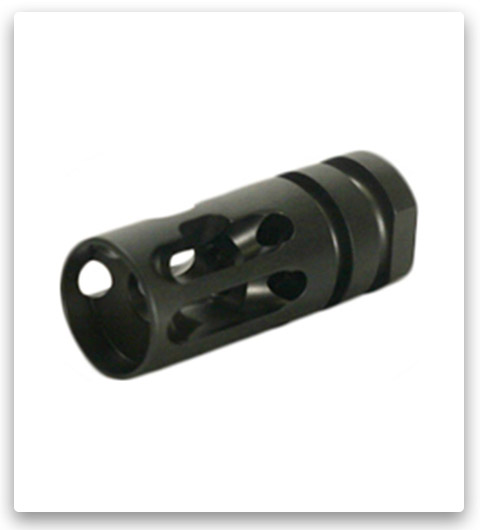 | 2A Armament T4 5.56 Titanium Compensator | 2A Armament |  |
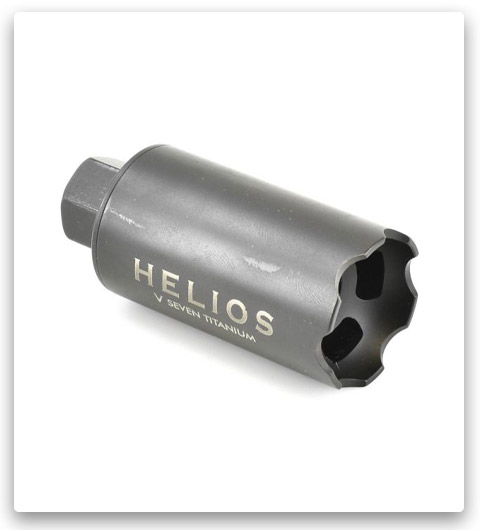 | V Seven Helios Linear Compensator | V Seven |  |
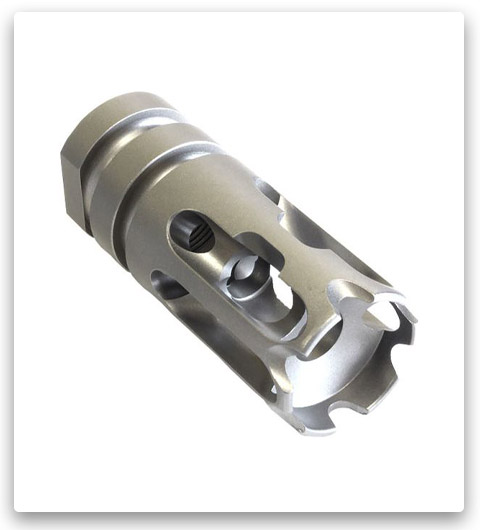 | 2A Armament T3 Compensator | 2A Armament |  |
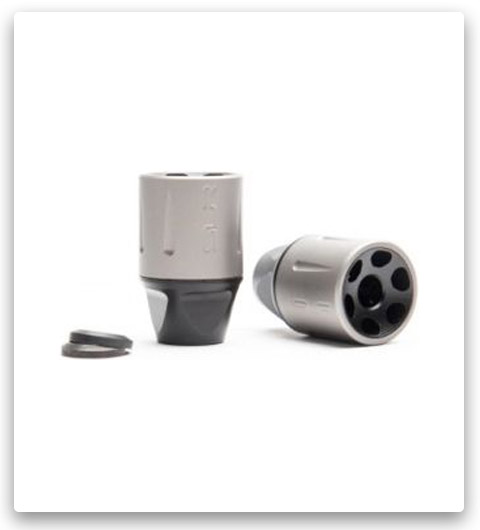 | SLR Synergy 9mm Linear Hybrid Compensator | SLR |  |
1# 2A Armament T4 5.56 Titanium Compensator 2A-TICOMP-T4BLK
The 2A Armament T4 5.56 Titanium Compensator is a lightweight mounting solution for suppressors that mount via an A2-style flash hider. The T4 is based on the great performance and design as the T3 compensator only in an ion bond black finish, and without the serrated end (which makes it very scabbard friendly). This dual baffle compensator directs expelled gasses to control muzzle direction. The T4 Titanium is made from titanium and is a lightweight mounting solution for suppressors.
2# V Seven Helios Linear Compensator
The V Seven Helios linear compensator is a top-of-the-line muzzle device that is perfect for shooters who are looking to improve their accuracy and control. This compensator is made from grade 5 titanium, making it completely resistant to corrosion. The V Seven Helios linear compensator suppresses flash and reduces recoil, keeping your line of sight clear while also helping you gain better control of your weapon when firing. By directing muzzle blast and sound away from you, you can stay more focused on your targets while also enhancing your hearing protection.
3# 2A Armament T3 Compensator
If you’re looking for a comp that can take your shooting to the next level, look no further than the 2A Armament T3 Compensator. This dual baffle comp is designed to direct gasses to stabilize the system and reduce muzzle rise, so you can stay on target and get those follow-up shots off with ease. It’s made of lightweight titanium and features a matte bead blasted finish. So if you want superior performance in a compact package, go with the 2A Armament T3 Compensator.
4# SLR Synergy 9mm Linear Hybrid Compensator
The SLR Synergy 9mm Linear Hybrid Compensator is one of the most reliable and durable muzzle brakes and compensators on the market. It has been developed using some of the most heavy-duty materials available, making it perfect for those who are looking for a long-lasting and reliable product.
Titanium vs Steel Suppressors ⚔️
📢 Here are some key differences between titanium and steel suppressors:
| 1️⃣ Weight: Titanium suppressors are generally lighter than steel suppressors, making them more comfortable to handle and carry. This can be particularly important for long-range shooters or those who need to move quickly and quietly. |
| 2️⃣ Durability: Titanium is more corrosion-resistant than steel, which can be an important consideration for suppressors that may be exposed to moisture or other environmental factors. However, steel can be more resistant to impact damage and deformation than titanium. |
| 3️⃣ Heat resistance: Titanium has a higher melting point than steel, which allows it to withstand higher temperatures without deforming or warping. This can be important for suppressors used with high-powered rifles or extended firing sessions. |
| 4️⃣ Price: Titanium suppressors are generally more expensive than steel suppressors due to the higher cost of the raw material and the more complex manufacturing process. |
📢 Ultimately, the choice between titanium and steel suppressors depends on the individual’s needs and preferences. 💁 Some shooters may prioritize weight and corrosion resistance, while others may prioritize durability and cost-effectiveness.
🎥 Hope the video will be helpful for you:
FAQ 🤔
Conclusion 🧾
Titanium suppressors are some of the best on the market. They are lightweight, durable, and have great sound suppression. If you are looking for a quality option, then be sure to read the buyer’s guide before making your purchase. We have listed some of the top-rated products on the market and provided helpful tips on how to choose the right one for you. Thanks for reading! ❤️😉

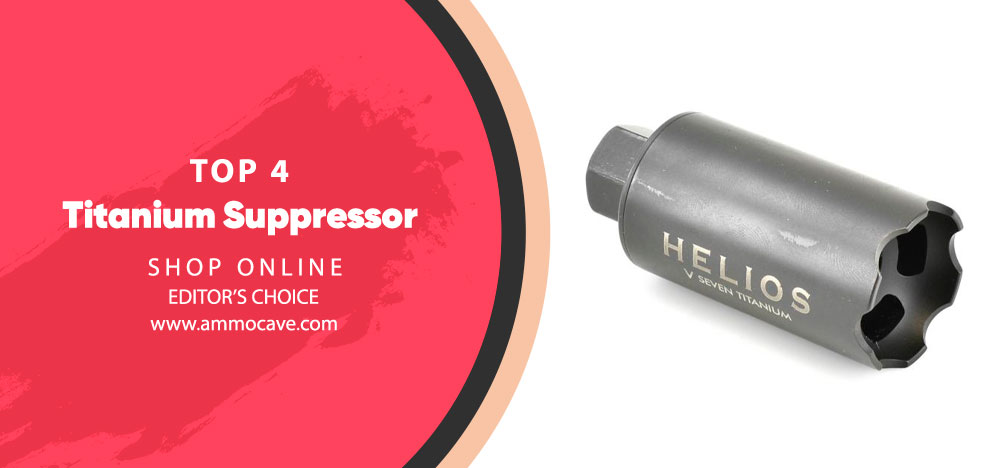


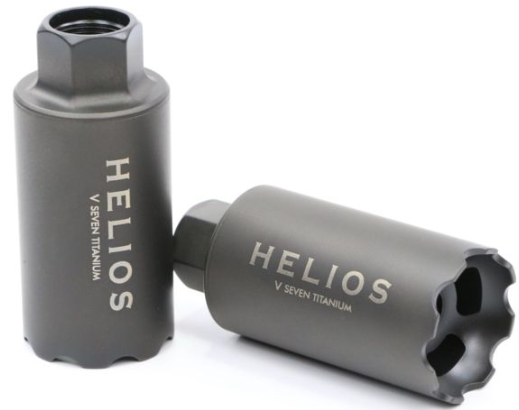
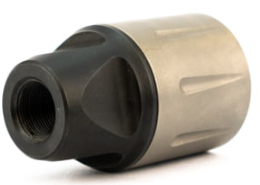
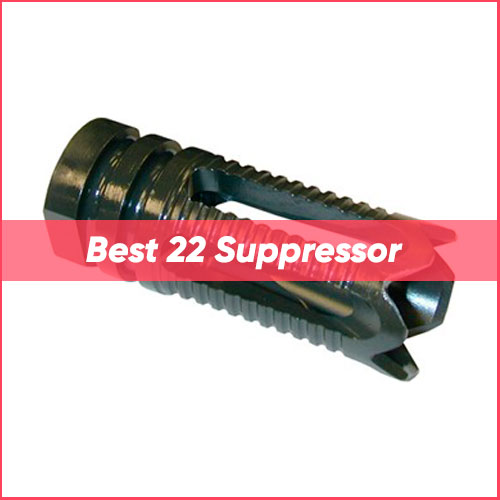
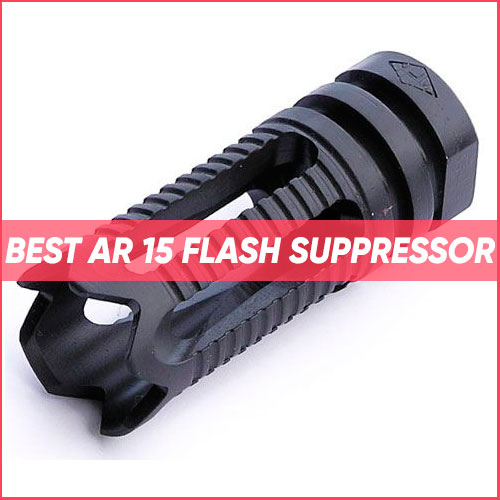
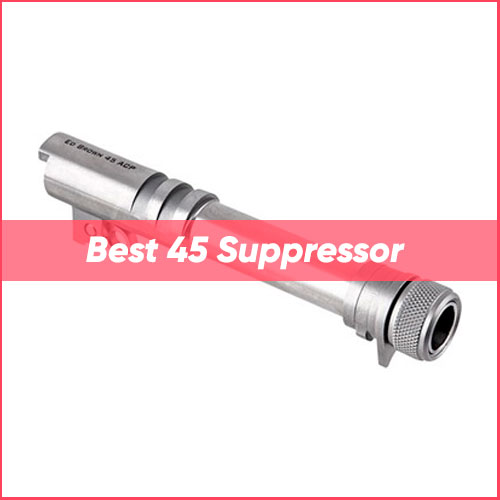
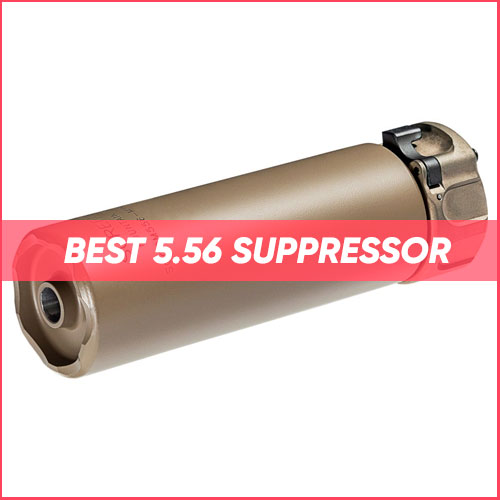
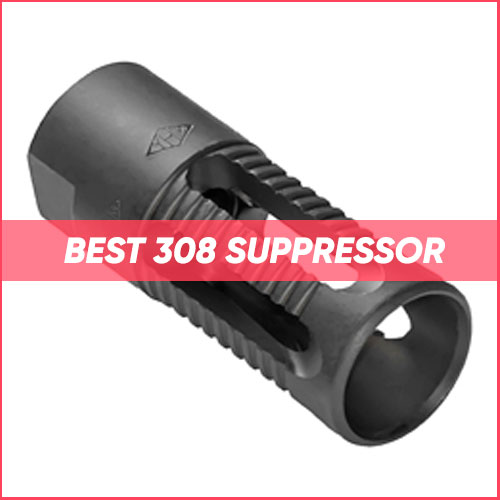
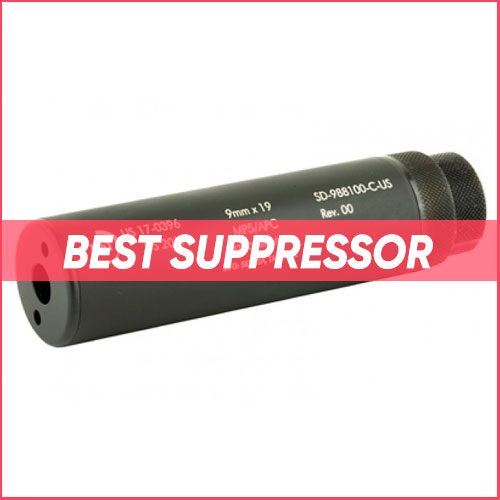
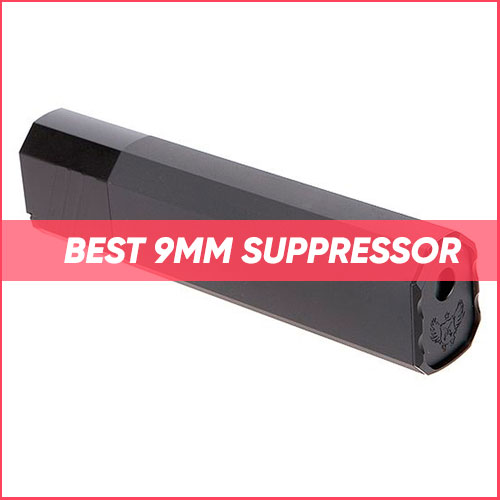
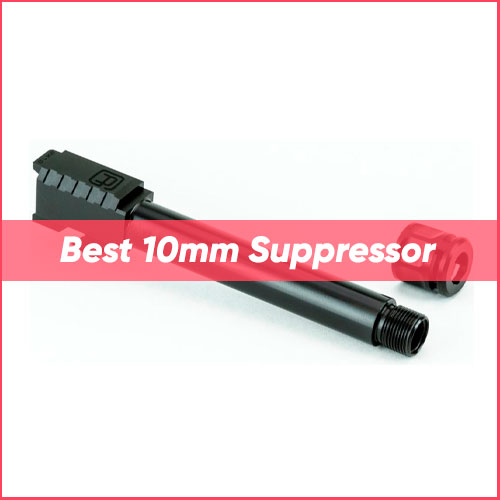
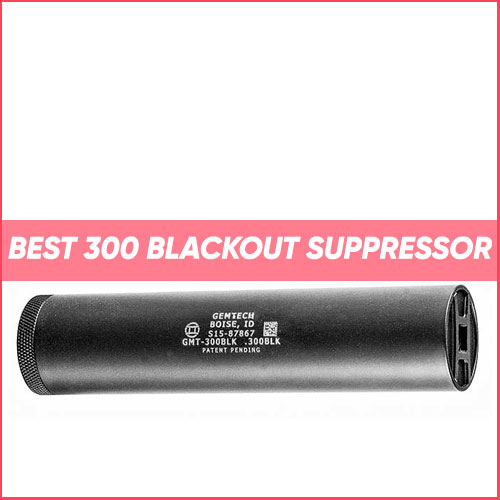
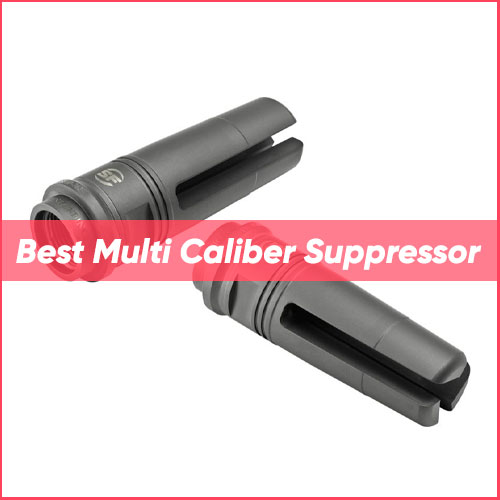
Based on my personal experience, I have built several titanium suppressors and have noticed that they tend to produce sparks during the initial shots due to leftover shavings and remnants from the assembly process. However, this typically occurs only within the first few shots, and once these shavings are burnt off or ejected, the suppressor operates smoothly without producing sparks, even in low light or dark conditions.
How about differences under NODS?
I am familiar with this topic as I have personal experience with it. Specifically, I have owned a Dead Air Sandman Ti suppressor and have never observed any sparks or flashes even when using night vision devices (NODS). This was on two different types of rifles – a bolt-action gun chambered in 300 Winchester Magnum and a 6.5 Creedmoor.
I am wondering if anyone has knowledge or experience with regard to cleaning titanium suppressors, specifically the Dead Air Nomad Ti. I am curious about the recommended round count before cleaning and the proper process for doing so. Thank you for your help.
📢 Cleaning a titanium suppressor such as the Dead Air Nomad Ti is an important aspect of maintenance to ensure its longevity and optimal performance. While there is no exact round count for when a suppressor should be cleaned, it is generally recommended to clean it after every few hundred rounds or when you notice a decrease in performance.
🧤 The cleaning process typically involves disassembling the suppressor and cleaning each component separately. It is important to use the appropriate cleaning solutions and tools to avoid damaging the suppressor. 📍 Some popular cleaning solutions include CLR, Hoppe’s No. 9, and ultrasonic cleaners.
⚠️ When cleaning the Dead Air Nomad Ti, it is important to avoid using any abrasive materials or aggressive solvents that could potentially damage the suppressor’s coating. It is also recommended to avoid submerging the suppressor completely in liquid, especially if it contains any porous materials such as ceramic or steel.
Upon reaching approximately 5000 rounds fired through my SAS Ti Arbiter suppressor, I decided to clean it thoroughly. To do so, I sealed one end and filled it with CLR, allowing it to soak for some time before shaking it vigorously. Following this, I ran the suppressor through an ultrasonic cleaner for a couple of cycles. I was taken aback by the significant amount of debris that was removed during the cleaning process.
After firing approximately 100 rounds of 300 PRC/7 SAUM through the suppressor, I disassembled it and was astounded by the amount of carbon buildup present. To tackle the issue, I collected all the components and placed them in a container before filling them with CLR. After about 30 minutes, I removed the suppressor tube, being careful not to damage the coating on the exterior. I then wiped down the baffles, leaving the particularly carboned-up ones to soak overnight in a diluted solution of CLR and water (50/50). I was impressed by how effectively CLR was able to remove the carbon buildup in comparison to other cleaning products.
In my opinion, titanium suppressors are the superior choice as they have a long lifespan when properly maintained and cleaned with ultrasonic methods when necessary. With proper care, these suppressors can last indefinitely.
It’s important to be mindful of the heat when using a titanium suppressor. I personally use a titanium suppressor on my Ar-15 SBR, and I try to avoid dumping more than two to three magazines without allowing it to cool down. Titanium suppressors tend to heat up rapidly, so avoiding extreme temperatures is key to ensuring their longevity.
I am considering purchasing a 5.56 suppressor made of titanium, specifically the Trek-T or YHM models. However, I have come across videos showing titanium suppressors producing significant amounts of sparks. I am curious to know if this is a common issue with all titanium suppressors, or if it only affects those that are not constructed with the appropriate type of titanium.
In my opinion, the sparks seen in some videos of titanium suppressors are likely caused by unburned powder and are not a normal occurrence. It is not expected for any suppressor to produce sparks, regardless of its construction material.
After careful consideration, I have decided to purchase a titanium suppressor for my rifle. While I am interested in the TBAC model, I may stick with a YHM suppressor since I already have their brakes on all my rifles. I plan to use the suppressor on my 10.5-inch SBR, and since both models are rated up to .300 Winchester Magnum, I believe that it should be suitable for use with a 5.56 rifle.
Can a titanium suppressor be used with any type of firearm?
✅ A titanium suppressor can be used with a wide range of firearms, including rifles, handguns, and shotguns. ⚠️ However, it is important to ensure that the suppressor is compatible with the specific caliber and type of firearm that you are using. Different suppressors are designed for different calibers and types of firearms, so it’s important to choose a suppressor that is appropriate for your particular firearm.
⛔️ Using a suppressor that is not compatible with your firearm can result in reduced accuracy, increased recoil, and potential damage to both the suppressor and the firearm.